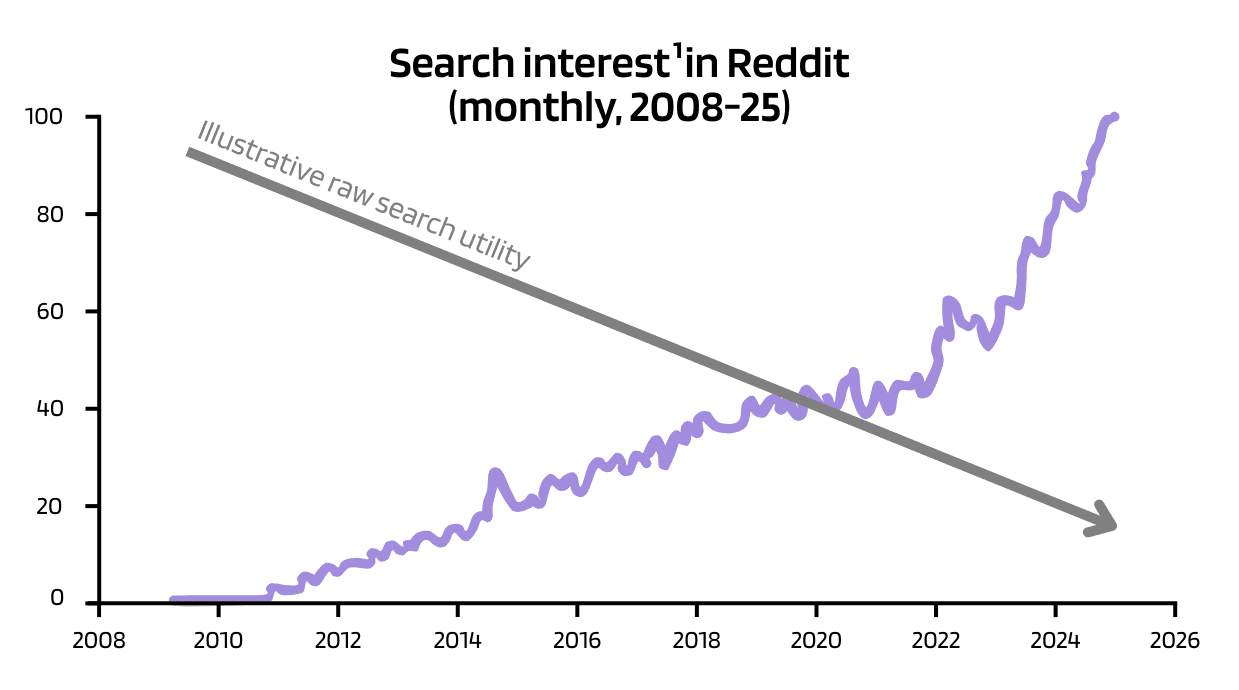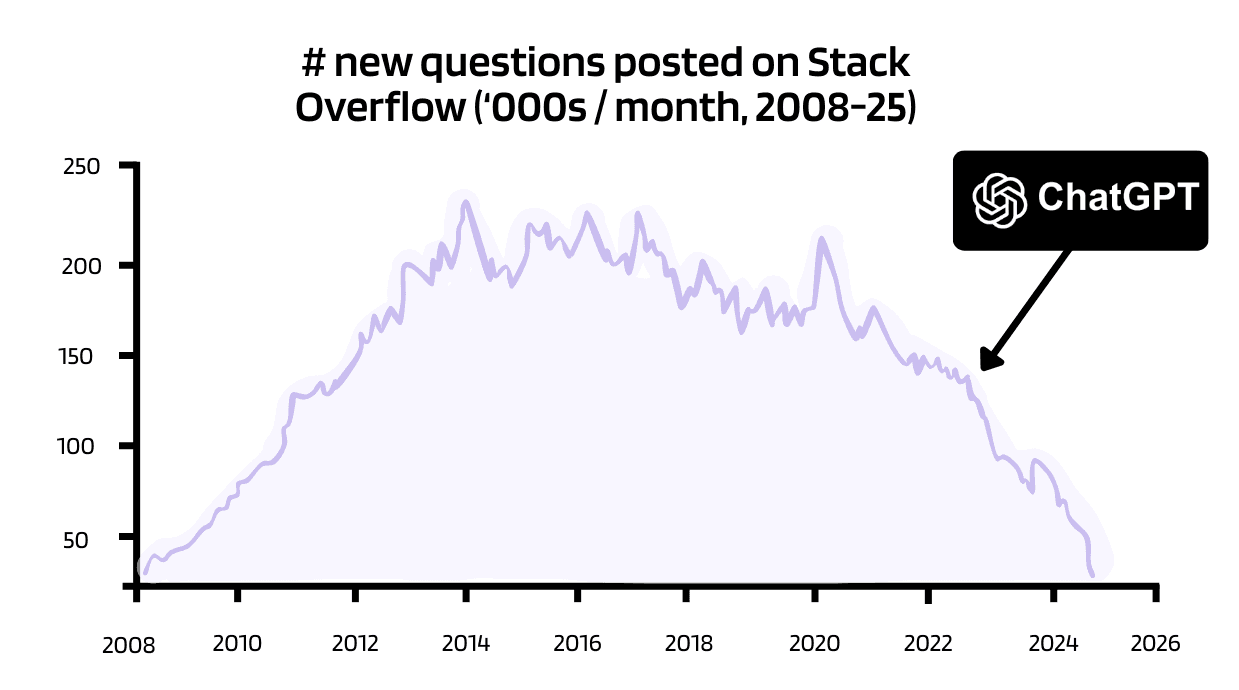
Between a bot and a hard place
Agentic commerce could transform shopping – but unless it resolves key paradoxes, it risks collapsing under its own weight. (Part 8)
This Insights series explores agentic commerce – a transformative shift where AI agents take the lead in shopping, payments and customer decision-making.
The rise of agentic commerce – where autonomous shopping agents transact on behalf of consumers – promises to change the way we buy and sell online. These digital shopping agents can search across retailers, compare options, negotiate prices, complete purchases and even manage returns – all with the shopper barely lifting a finger. On paper, this looks like the logical next step in the evolution of e-commerce: frictionless, hyper-personalised and relentlessly efficient.
But as with most technological revolutions, the reality may be more nuanced. The very features that make agentic commerce so appealing could also sow the seeds of its undoing – commercially, technically and even socially. Unless carefully navigated, agentic commerce risks falling into the trap of trying to please everyone but satisfying no one.
It's not all doom and gloom though. By understanding the tensions at play, we can design business models, incentives and technical guardrails that allow agentic commerce to thrive sustainably.
The commercial paradox: The tug of war between buyers and sellers
At its heart, commerce is a negotiation between two parties: buyers seeking trust, value and streamlined experiences, and sellers seeking visibility, conversions and profitability. Agentic commerce inserts a new actor into this delicate continuum: the shopping agent.
For shoppers, agents must prove their worth by delivering:
- Trusted recommendations
- Relevant products and services
- Competitive prices and value for money
- Streamlined, low-friction purchase flows
- Bulletproof privacy and data protection
For merchants, agents must retain value by ensuring:
- Visibility and discoverability
- Maximum conversion
- Promotion of high-margin or surplus inventory
- Brand loyalty
By mediating between these opposing needs, agents risk creating a zero-sum game. If they lean too far toward buyer neutrality, merchants disengage. If they tilt toward merchant incentives, buyers lose trust. In either case, adoption stalls.
"The challenge for agent developers will be to create mutual incentives that foster adoption at scale."
Much depends on the agent's chosen monetisation model. Options include:
- Buyer-side/pay-to-play (consumer subscriptions, freemium models, bundled services):
- Easier to maintain neutrality but hard to scale while free alternatives exist
- Merchants dislike losing influence, limiting participation
- Seller-side/agent marketing (sponsored listing, affiliate fees, merchant commissions):
- Generates merchant value but risks turning agents into "ad wrappers"
- Buyers will not accept biased or opaque recommendations
- Agent-as-a-service (white-label deployments for retail platforms):
- Delegates the monetisation dilemma to another actor
- May skew in line with the deploying party's priorities
- Data monetisation
- Fraught with legal, ethical and privacy concerns for buyers
- Weak value proposition for merchants without agent marketing channels
In short, every path to monetisation risks alienating one side of the ecosystem. The challenge for agent developers will be to create mutual incentives that foster adoption at scale.
The technical paradox: Agents eating their own tails
Even if the commercial balance is struck, there is a deeper technical challenge. Agentic commerce depends on the richness of the very online communities it might inadvertently undermine.
Here's an illustration of how it could play out if left to its own devices:
- Shoppers engage with online communities (Reddit, Discord, product forums), ask product-specific questions and share authentic feedback/sentiment
- Generative AI emerges, LLMs are trained on the same online community data
- Shoppers start asking their shopping agents for advice instead of online communities (which themselves become infected by AI slop)
- Online community engagement levels drop
- LLM training data declines in volume/quality, models lose freshness and agents become less helpful
- Craving authenticity, shoppers abandon agents and return to human-led communities
We're already seeing hints of this dynamic playing out in the real world.

Traditional search engines have degraded over time due to the growing prevalence of sponsored results, SEO spam, affiliate blogs, content mills and AI-generated content. In response, searchers have increasingly relied on appending their queries with human-led forums (e.g., Reddit.com), illustrating the enduring consumer thirst for authenticity.

The impact of GenAI on online communities is most aptly described by data from Stack Overflow, a question-and-answer website for developers. In the aftermath of ChatGPT's release, post volume on the forum declined sharply to the point of almost diminishing entirely. This is hardly surprising: The ability for ChatGPT and similar tools to interpret complex questions and provide immediate, reasoned, authentic-sounding responses negates the need for a traditional online forum in most instances.
"Without fresh, authentic input, agents risk a slow slide into irrelevance."
What happens, though, if we map this trend to product forums? What happens when the iPhone 37 is released in 20 years' time and there's no associated authentic, human-generated sentiment data to inform a shopping agent's recommendations for a new phone?
In other words, agentic commerce may cannibalise the very data ecosystem that sustains it. Without fresh, authentic input, agents risk a slow slide into irrelevance.
A path forward: Designing for sustainability
Agentic commerce doesn't have to be its own worst enemy. By acknowledging these dynamics early, the industry can adopt strategies that align long-term value for buyers, sellers and the agents themselves.
Here are practical steps the ecosystem – and payments providers like Worldpay – can take to build agentic commerce on sustainable ground.
Create shared incentive models
- Design monetisation structures that benefit both merchants and consumers.
- Hybrid approaches (e.g. modest subscription fees paired with transparent merchant commissions) may strike the right balance.
- Build transparency into ranking and recommendation logic to prevent "black box" bias and continue to provide shoppers with an element of choice.
Foster trust through neutrality and auditability
- Introduce audit trails for agent recommendations so users can understand why certain products were surfaced.
- Adopt open standards for agent behavior, avoiding opaque or manipulative ranking mechanisms.
Preserve and feed authenticity
- Support and incentivise human-led online communities, rather than replace them.
- Encourage "data commons" partnerships where authentic, high-quality content remains accessible for model training.
- Explore mechanisms where agents contribute back to communities (e.g., surfacing and crediting human-authored content).
Privacy as a differentiator
- Prioritise data minimisation, encryption/tokenisation and user control.
- Frame privacy as a value driver, rather than purely a compliance obligation.
Avoid overfitting to old models
- Resist the temptation simply to repackage ad tech for the agent era.
- Design fresh approaches to monetisation that reflect the unique dynamics of agent-mediated commerce.
Closing thoughts
Agentic commerce sits at a crossroads. It promises efficiency and personalisation, but without careful design, it risks being undermined by its own incentives and dependencies.
At Worldpay we recognise this. That's why we're helping shape the infrastructure, standards and business models to make agentic commerce viable and sustainable – with payments and data flows that reinforce trust, incentivise participation and preserve authenticity.
Agentic commerce is likely to emerge in some form – the key question is how it will take shape. The task faced by the ecosystem at large is to ensure that agents serve as enablers rather than bottlenecks, and that they strengthen rather than hollow out the ecosystems they depend on.
And if we can get this balance right, the agentic future looks very bright.
Previously in this series:
Part 7: How agentic commerce will transform key industries
Agentic commerce is moving from concept to reality – reshaping retail, travel, finance, gambling and everyday shopping in ways that demand merchants act now to stay ahead.
Coming up next:
Part 9: Rules for the agent era
A pragmatic policy playbook to unlock safe – and scalable – agentic commerce without slowing innovation.

Related Insights


